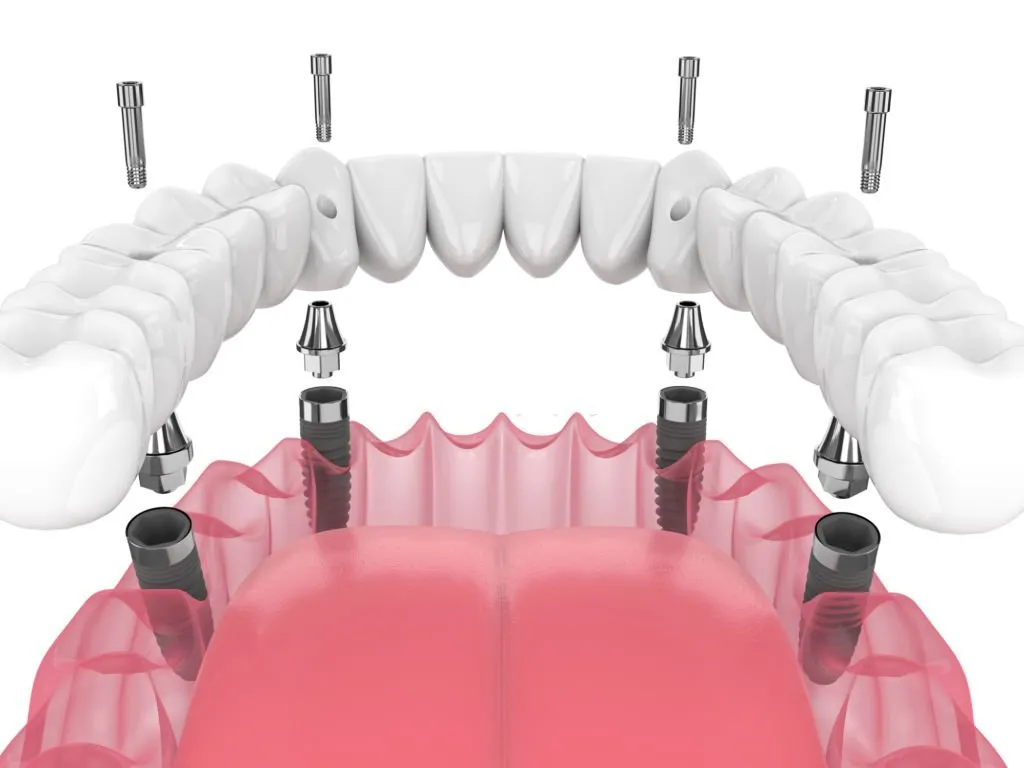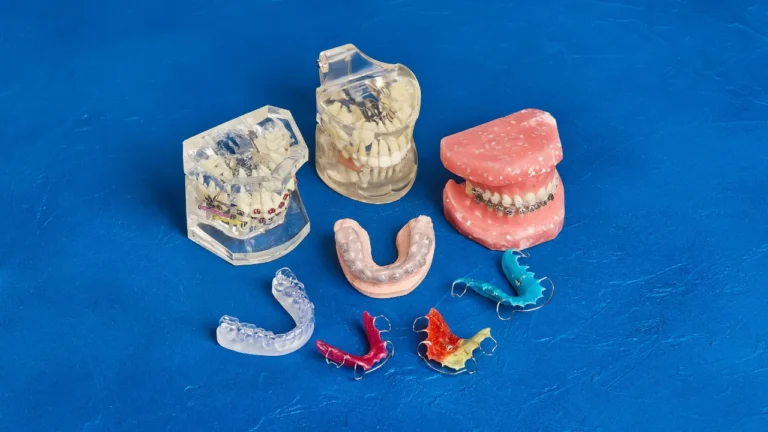Are you tired of traditional dentures that slip, click, and cause discomfort?
Do you want a more permanent and natural-looking solution to replace missing teeth? Then denture implants may be the right choice for you.
A denture implant is an oral appliance that replaces several teeth at once. It’s similar to a traditional denture.
But instead of resting on top of your gums, an implant-supported denture attaches directly to your jawbone using dental implants.
Benefits of Denture Implants
Denture implants, also known as implant-supported dentures or overdentures, offer several advantages over conventional dentures:
- Increased stability and function: Unlike removable dentures, which rest on the gums and rely on suction or adhesive to stay in place, denture implants are anchored in the jawbone through small titanium posts. This provides a secure and stable foundation for the denture, allowing you to eat, speak, and smile with confidence.
- Improved oral health and hygiene: Denture implants stimulate the bone tissue, preventing bone loss and preserving the natural shape of your face. They also eliminate the need for messy adhesives, which can trap food particles and bacteria and cause gum irritation.
- Enhanced appearance and self-confidence: Denture implants look and feel like natural teeth, blending seamlessly with your remaining teeth and gums. They also prevent the sunken-in look that often occurs with traditional dentures and boost your self-esteem.
- Long-term cost savings: Although denture implants may require a higher initial investment than conventional dentures. They can last a lifetime with proper care and maintenance. They also eliminate the need for frequent denture adjustments, repairs, and replacements, which can add up over time.
How Denture Implants Work
The process of getting denture implants typically involves several steps:
- Consultation and planning: Your dentist will evaluate your oral health, take x-rays and impressions, and discuss your goals and expectations for the procedure.
They will also explain the different types of dental implants and recommend the best option for your needs.
- Implant placement: During the surgery, your dentist will place the implants into your jawbone and cover them with a temporary denture or healing cap. You will need to wait several months for the implants to fuse with the bone tissue and form a strong bond.
- Abutment placement: Once the implants have healed, your dentist will attach abutments or connectors to the implants. These will serve as the anchor points for the denture.
- Denture fabrication and placement: Your dentist will take impressions of your mouth and create a custom-made denture that fits over the abutments.
They will adjust the denture for proper fit and function and secure it in place with screws or snaps.
Types of Dental Implants
There are two main types of dental implants used for denture stabilization:
- Endosteal implants: These are the most common type of dental implant, consisting of small screws or cylinders that are placed into the jawbone. Endosteal implants are suitable for most patients who have enough bone density and volume to support them.
- Subperiosteal implants: These implants are placed on top of the jawbone but under the gum tissue. They are typically used when a patient does not have enough bone for endosteal implants or is not a candidate for bone grafting.
Caring for Your Denture Implants
To ensure the longevity and success of your denture implants, you should follow these tips for aftercare:
- Brush and floss regularly: Clean your implants and denture daily with a soft-bristle brush and non-abrasive toothpaste or a water-based oral irrigator. Use floss or interdental brushes to clean between the implants and natural teeth.
- Avoid damaging habits: Do not chew on hard objects or bite into sticky or chewy foods that can dislodge the denture or damage the implants. Avoid smoking or using tobacco products, which can delay healing and increase the risk of implant failure.
- Attend regular checkups: Visit your dentist or prosthodontist every six months or as recommended for checkups and cleanings. They will monitor your oral health and the stability of the implants and make any necessary adjustments or repairs.
Denture implants can be a life-changing solution for people who want to regain their smile, function, and confidence.
By understanding the benefits, procedure and aftercare of denture implants, you can make an informed decision about your oral health and find a provider who can meet your needs.





